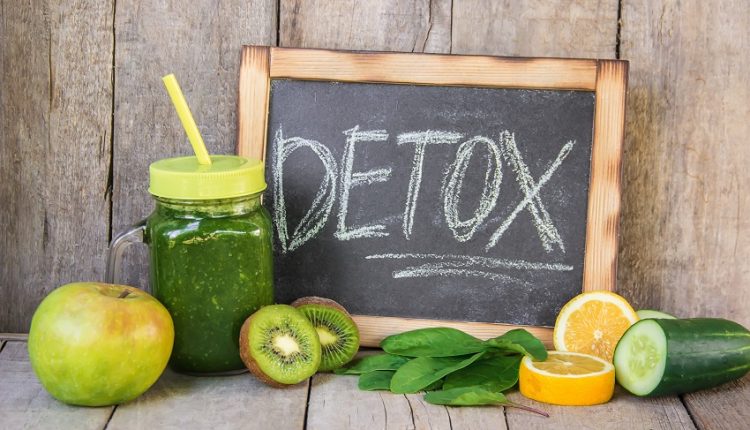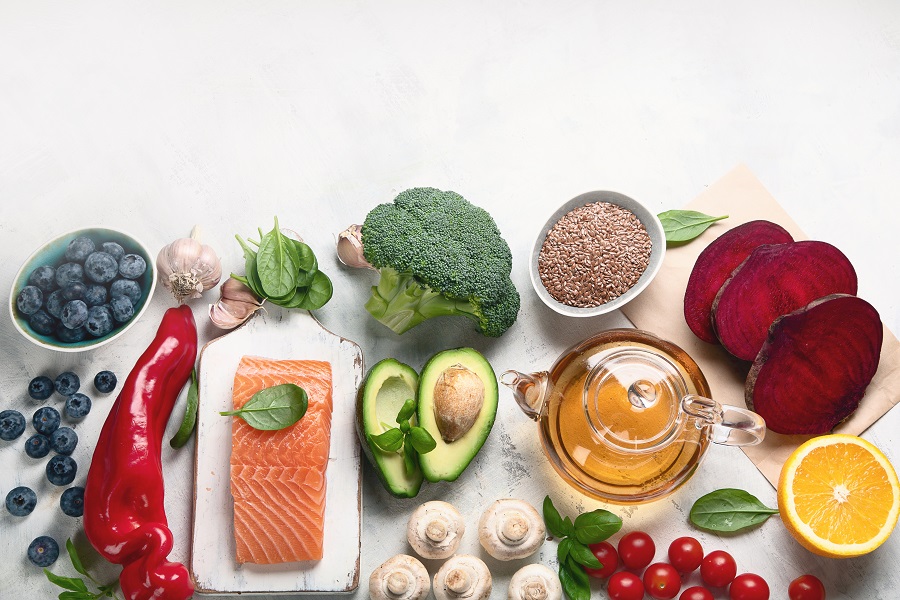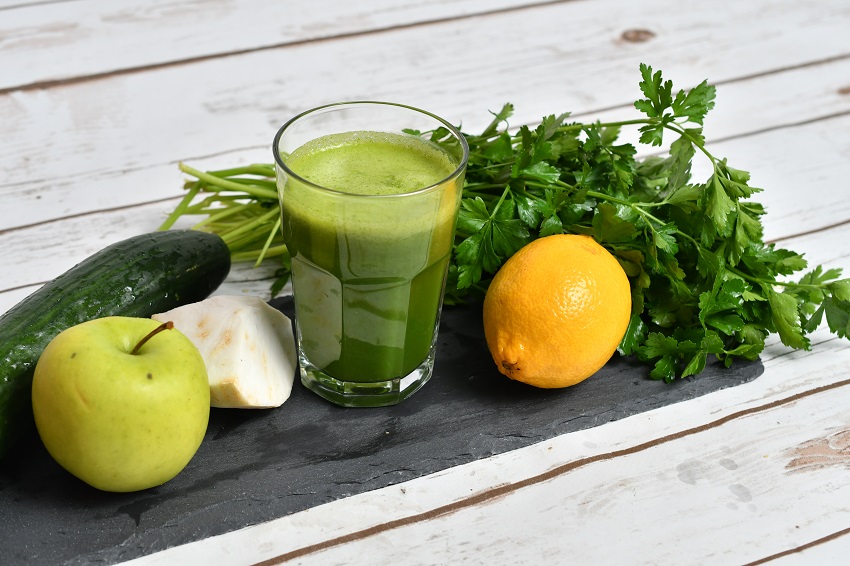
Detox Diet for Seniors: Myths, Facts, and Alternatives
The idea of detoxification goes back thousands of years ago. According to some sources, the process of detoxification originated in ancient Egypt and the religious rites of the American Indians. Getting rid of toxins and increasing your health seems like an attractive idea; unfortunately, this theory does not have strong scientific evidence.
There are many articles today discussing detox diets for seniors. Different 3-day and 7-day detox diets promise weight loss, increased health, and other benefits. Most detox diets focus on significant calorie restriction and consumption of juices and smoothies.
However, according to many nutritionists, detox diets have no scientific basis and may even have the opposite effect, leading to weight gain or malnutrition. In today’s article of Living Maples Mag, we will discuss the benefits of a detox diet for seniors.
- Read More: Trending Diets of 2020 for Seniors
Contents
History of Detoxification
In medicine, “detoxification” is when the body gets rid of alcohol, drugs, and toxins. Detoxification treatments occur in a hospital under the supervision of a doctor using various medications. However, the theory of the detoxification diet is different. This theory declares that detox diets release toxins from the body gathered during our daily lives. These toxins mainly include insecticides and pesticides, antibiotics, chemical compounds from packaged foods, detergents, food additives, heavy metals, airborne contaminants, drugs, and cigarettes.
Many detox diets claim to remove these wastes from the body, resulting in increased energy, clear skin, weight loss and other benefits. Unfortunately, there is no quality, independent clinical trial to support these claims. Proponents of this diet believe that consuming certain foods makes these effects possible. But what are these foods?
What are the effective foods in detoxification?
The drinks and foods of each detox diet can be very different. The authors of a research paper published in the Journal of Nutrition and Metabolism in 2015 identified some effective foods in detoxifying the body. These foods include garlic, grapefruit, rosemary and a variety of teas.

Besides these foods, most detox diets focus on reducing processed foods such as sausages, processed bread and pasta, and foods high in sugar and sodium from seniors’ diets. In addition, many of these diets restrict you to eating fruits, vegetables, and lean meats. The healthiest detoxification programs allow you to get different foods from all food groups. These food groups include:
- Fruits
- Vegetables
- Whole grains
- Healthy oils
- Protein foods
- Lean or low-fat dairy products
Advantages and Disadvantages of a Detox Diet
We usually turn to diets to maintain our health or lose weight. Many seniors choose a detox diet for rapid weight loss. Of course, it is not usually possible to lose weight with short-term plans; but you can lose weight with a low-carb detox diet. Another advantage of these programs is their short duration. A 3-day detox program may be more practical for some, and it can be a step toward developing healthier lifestyle habits.
But the detox diet is not all about the advantages. Several studies found that detox diets are usually effective in the short term because of their low-calorie content. Still, after returning to a regular diet, their effects typically disappear, and the senior gains weight again, making them useless to try.
Various myths have also given rise to the detox diet’s popularity and have led seniors to try these diets with no end.
Myths About the Detox Diet
Below is a list of myths regarding the detox diet.
Myth 1: A Detox Diet Helps Increase Energy Levels
It is not true since most detox diets limit the foods to specific sources that cannot provide enough nutrients for the body. Hence, the seniors may not feel as energized as their regular diets. Furthermore, some detox diets dramatically reduce your calorie intake; for example, some fruit detox diets may provide you with only 600 calories a day. This is much less than a senior’s daily calorie requirement. Without enough energy, one can become sluggish and tired.
Myth 2: Special Supplements Should Be Used During the Detox Diet
Some companies offer detox diet supplements at relatively high prices. These products usually include fibre supplements, green tea, or other thought to improve energy and weight loss, But you should know that you do not need to pay for supplements. You get the fibre you need when you have a good diet that includes whole grains, fruits, and vegetables. Getting enough fluids and adequate calories also helps provide the body with energy and healthy fuel.
Myth 3: Laxatives Increase Detoxification
Some sources claim that their products can increase detoxification. There is no evidence that laxative products help detoxify the body. According to the US National Institutes of Health (NIH), laxative detoxification programs can cause severe diarrhea and eventually lead to dehydration and electrolyte imbalance in seniors. Hence, it is necessary to stop using any laxative products during the detox diet.
Myth 4: The Detox Diet Cures Some Diseases
A detox diet is not beneficial to diseases and may even worsen them. There is no research on the positive effects of this diet on improving blood pressure, cholesterol or improving heart health. This diet is hazardous for seniors with diabetes. Any diet that severely restricts food intake and lowers blood sugar can be dangerous for seniors with diabetes or those taking medications to control their blood sugar or blood pressure.
- Read More: Nutrition in Seniors with Diabetes
Detox Diet vs. Other Diets
Detox diets tend to have a slight advantage over other diets. In compliance with USDA guidelines, most detox diets cannot provide the body’s macronutrients (fats, carbohydrates, and proteins) or micronutrients (vitamins and minerals). Even if these diets provide the calories you need, they may still be deficient in carbohydrates, dairy, and many healthy proteins and fats.
As the detox diet, many popular diets in recent years (such as the Atkins diet and the South Coast diet) start with a restrictive phase. The Atkins diet, for example, begins with the elimination of almost all carbohydrates. Unlike detox diets, these diets have a plan that eventually becomes a healthier, longer-term diet that includes all food groups. But seniors using the detox diet have to limit their calorie intake to just fruits, vegetables, and whole grains during all diet stages, leading to severe illnesses, especially in vulnerable age groups such as seniors.
Hence, we can conclude that detox diets are not suitable for seniors, and you should look for alternative diets to cleanse your body of dangerous chemicals.
A Healthy Alternative to the Detox Diet
If you are overweight and inactive, why not create a healthy short-term plan to get rid of toxins in your body? Try to reduce your intake of unhealthy foods for seven days and focus instead on nutritious and unprocessed foods. This short-term change in your daily diet will allow you to try fresh fruits, fresh vegetables, whole grains and healthy vegetable oils.

During these seven days, eliminate processed foods, high-fat dairy, refined grains, and foods containing sugar, caffeine, processed meats, and condiments. Also, it is best to avoid alcoholic beverages during this period. Alcohol breaks down in the liver. Some of the alcohol converts to acetaldehyde. Acetaldehyde is a chemical compound that can damage liver cells and body tissues before excretion. By eliminating alcohol and helping your liver relax, you can exercise to build healthy habits. Some further considerations for these seven days include:
1. Eat Healthy Foods
There are no fixed rules for eating certain foods during these seven days. However, high-fibre foods, such as whole grains, nuts, and seeds, would also help prevent type 2 diabetes. Of course, you should consume these foods in moderation. Consuming plant proteins and probiotic products will also help you achieve your goal.
2. Drink Plenty of Fluids
Drinking plenty of water will help flush toxins out of your body. When you want to detoxify your body, you should drink at least eight glasses of water a day. Adding lemon juice to the water can also help you start detoxification. Although thirst is a guide to your fluid needs, it is best to talk to your doctor about proper fluid intake.
3. Increase Your Physical Activity

By increasing blood circulation, you remove toxins from the body. To improve blood circulation during the detoxification process, you can add light exercise to your daily routine. These include walking or attending yoga classes. If you haven’t exercised for a long time, consult your doctor before starting an exercise program.
Read More: Yoga Helps Seniors Lose Weight
Final Words
There are several diets to lose weight and increase health. The detox diet may be attractive, but most diets do not have a significant long-term effect on seniors. Detoxifying your body through different foods is the best method. Share with others if you have any experience with such diets, and let us know if you have any questions in the comment section.
There are no specific foods or diets that will detox your body. That is what your liver and kidneys do via their natural functioning. It all happens automatically as long as nothing goes wrong with either of them.
You “detox” every time you pee actually. No special diet is necessary for this except simply staying hydrated.
Some people believe the herb milk thistle will support good liver function, and if you really must, you can buy it in capsule form.
But honestly, your liver and kidneys work at “detoxing” you every single day. Give them some credit, for god sake…
You can begin by changing what you drink.
Drink more water throughout your day. Cut out all carbonated drinks. Adding lemons to a nice crisp ice-cold glass of water will provide you with a proper boost in vitamin C, antioxidants, and potassium.
I would try different teas as well or take amla juice in the morning…..It will flush out all toxins from your body.
After that, you can have egg whites, lean meat and pulses.
Not allowed: Anything that has to be chewed, processed food, cow’s milk, alcohol, salt, coffee or sugar.
Also, do not sleep right after eating.
Well, maybe I’m not supposed to say this, but the truth is, “detox” methods are entirely bogus.
Unless you have problems with your liver or kidneys, your body is actually quite efficient at getting rid of the toxins.
Eating healthier is a wonderful idea and can definitely improve your health. But your best course of action is just to begin eating better. Doing an all-juice diet, or eating only raw vegetables and drinking tea, won’t help.
In fact, it’s likely to harm you: such diets can often cause low blood sugar, diarrhea, dizziness, or any number of other side effects.
I would say going for a week without oil and sugar would do the trick!
Have a bowl of sprouts for lunch; it can be very filling, and it does not need to be bland; add carrots, cucumbers, onions, garlic etc.
Avoid caffeine; go for green tea instead.
Add lots of fruits and carbs from brown rice or brown bread. And eggs for protein. Basically, eat clean and whole.
If possible, try having orange juice once daily.
I did this after an embarrassing week of eating junk food. I feel better already. I even lost weight.